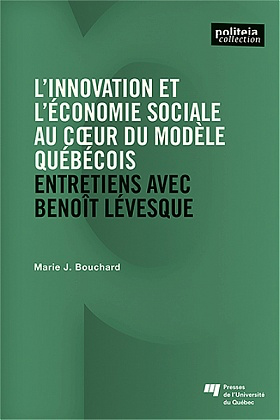Author: Marie J. Bouchard
Social innovation and the social and solidarity economy are at the heart of Benoît Lévesque’s analysis of the Quebec model, which is now attracting interest around the world. This sociologist from the University of Quebec, former president of the Scientific Council of CIRIEC-International, is one of the major contributors to the recognition and promotion of a broad vision of the economy, which covers not only the private sector, but also the public sector and civil society initiatives, namely a plural economy, some of whose components are oriented towards economic democratization.
Designed in the form of interviews with Benoît Lévesque, this book allows to explore with the researcher the context of his scientific production and its significance for society. The result is a hybrid genre, where biographical elements are combined with personal and intellectual testimony, offering the reader a journey through a life, the history of a thought and its influence.
These conversations allow us to discover the particularities of the profession of a committed sociologist and his vision of the recent history of Quebec, from the Quiet Revolution to the present. His work and interventions show the importance of the role played by actors in civil society, carried by collective organizations often oriented towards the general interest, such as community organizations, unions, cooperatives, social economy enterprises, and more recently the philanthropic sector and the environmental movement.
The book focuses on social relations, but it also highlights the political dimensions of the Quebec model. It reveals a state that is more strategic and a civil society that is more political than previously assumed, suggesting a “civil socialism”. Based on these observations, the sociologist provides food for thought for the future, which he sees as a committed society.
https://www.puq.ca/catalogue/livres/innovation-economie-sociale-cour-modele-quebecois-4164.html







